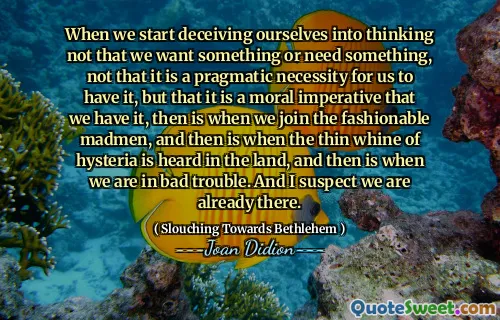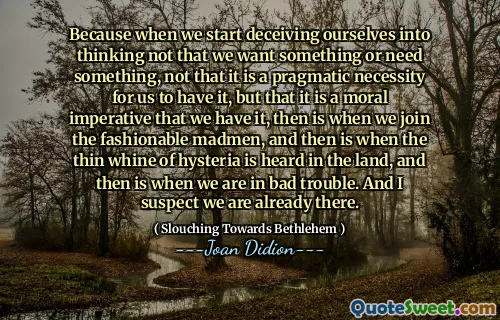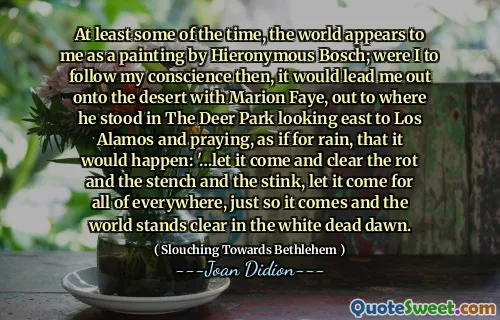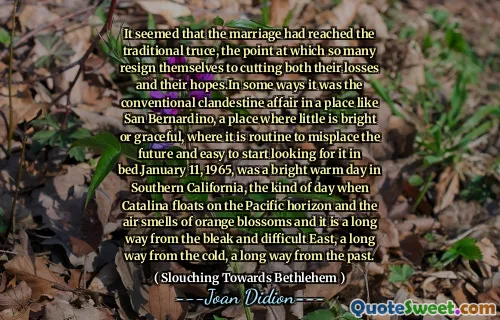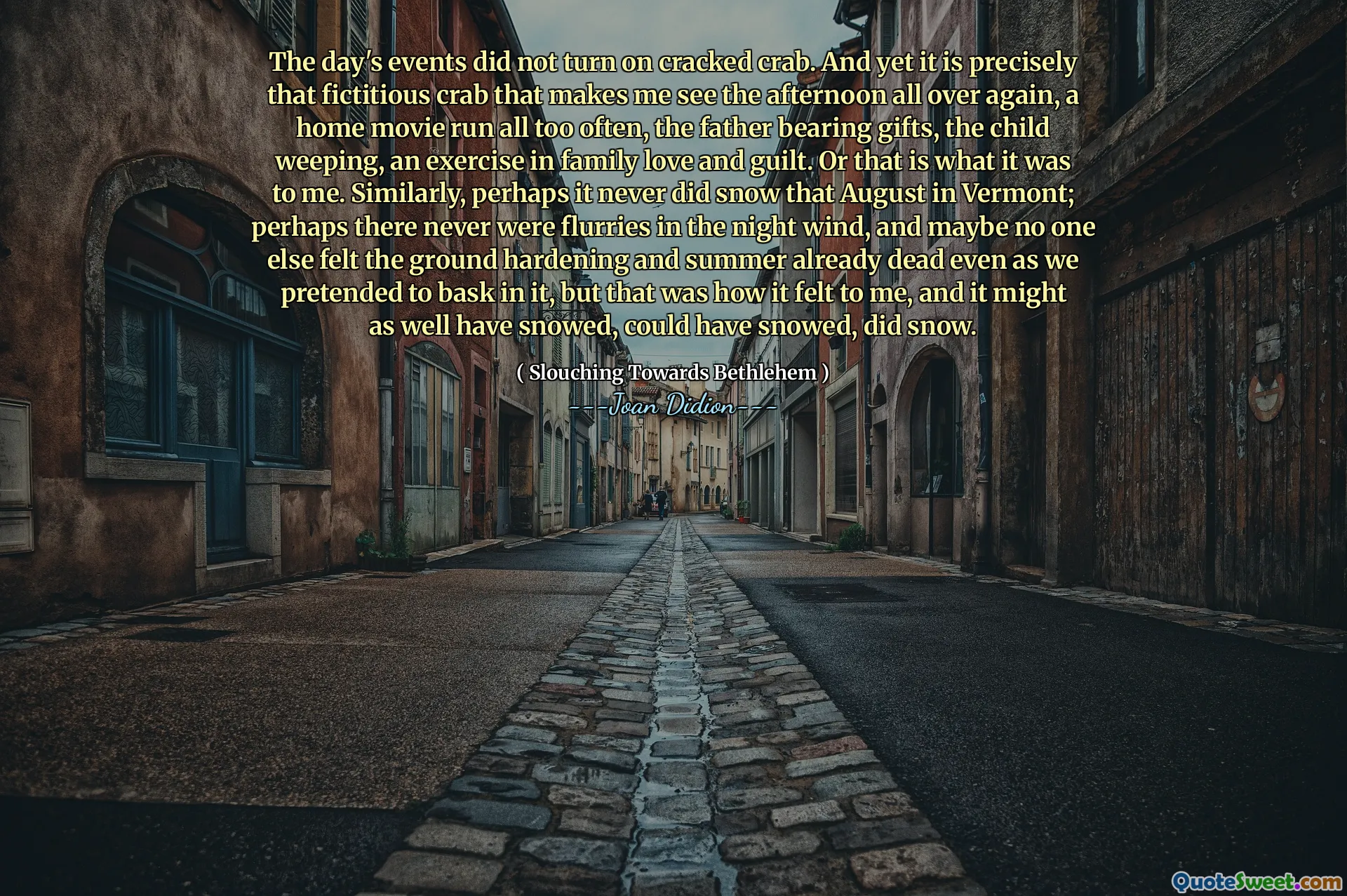
The day's events did not turn on cracked crab. And yet it is precisely that fictitious crab that makes me see the afternoon all over again, a home movie run all too often, the father bearing gifts, the child weeping, an exercise in family love and guilt. Or that is what it was to me. Similarly, perhaps it never did snow that August in Vermont; perhaps there never were flurries in the night wind, and maybe no one else felt the ground hardening and summer already dead even as we pretended to bask in it, but that was how it felt to me, and it might as well have snowed, could have snowed, did snow.
In Joan Didion's "Slouching Towards Bethlehem," the author reflects on the complexity of memory and perception, illustrating how personal experiences shape our understanding of events. She uses the metaphor of a fictitious crab to convey the mix of joy and sorrow associated with family interactions, suggesting that even trivial moments can evoke deep emotions of love and guilt. Thus, the significance of those memories transcends their actual occurrence, highlighting the subjective nature of our emotional experiences.
Didion further explores this theme by recounting a possibly false memory of an August snowfall in Vermont. By questioning the reality of flurries and the changing seasons, she emphasizes that our feelings can distort or enhance our memories. Whether or not it actually snowed becomes irrelevant; the essence of her experience is what truly matters. In this way, she captures the ephemeral quality of memory and how it can evoke a profound sense of loss or nostalgia, regardless of its factual basis.
